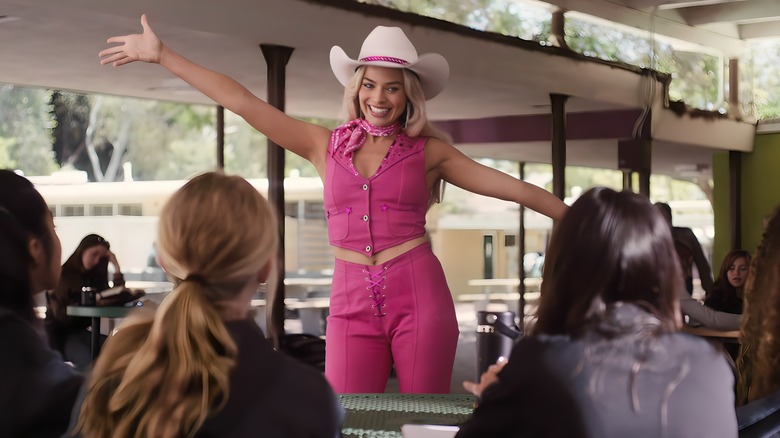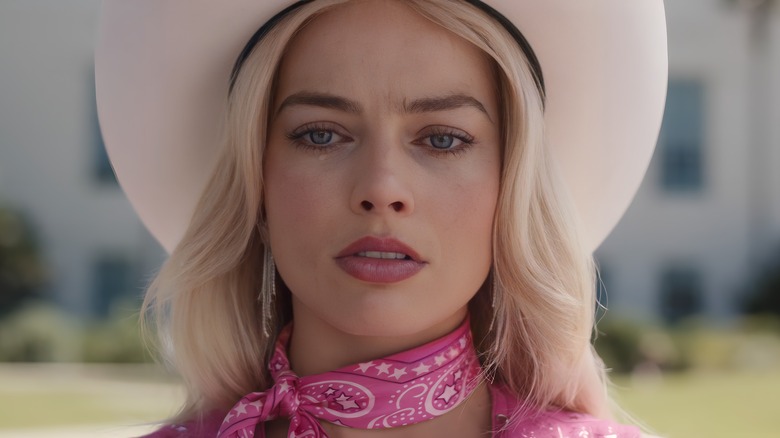Why Barbie Calling Out 'Women Who Hate Women' Is Vital For Young Girls To Hear
Contains spoilers for "Barbie"
Greta Gerwig warned us ahead of time — her "Barbie" movie is meant for people who love Barbie and hate Barbie in equal measure. When we first meet our leading Barbie, played by Margot Robbie, she lives a beautifully charmed life in Barbie Land, but all of that goes awry when her feet flattened, her perfect body is "marred" with cellulite, and she starts obsessively thinking about dying. She heads to the real world to track down the person playing with her, whose sadness is bleeding into Barbie Land... and she finds Sasha (Ariana Greenblatt), a teen with a temper who has zero interest in Barbie.
Sasha lays into Barbie, unleashing a steady stream of insults until she eventually settles on calling Barbie a "fascist." (Barbie, near tears, protests that she couldn't possibly be a fascist because she doesn't control the railways or the flow of commerce.) Barbie walks away crying, hurt to meet people who hate her so fiercely — but her luck turns around when Sasha's mom Gloria (America Ferrera) helps Barbie, and Sasha comes around.
This is such a common phenomenon that's rarely touched upon, so it's refreshing to see Gerwig address it head-on. Sasha's reaction to Barbie is an impulsive gut reaction — she's hating this other woman because the patriarchy encourages internalized misogyny.
Barbie has a powerful message about women overcoming misogyny — and sticking together
Sasha is unrelenting when she attacks Barbie, but this is a common thing — especially with teenage girls. Another movie with a hyper-feminist monologue, "Gone Girl," details this thinking midway through the film, when Amy Elliott-Dunne (Rosamund Pike) goes off about always having to be the "cool girl" to impress men, changing your skin like a chameleon constantly so that men will think you're "chill" and "fun" and, above all, "cool." Sasha is falling prey to this exact thing when she goes for Barbie's jugular, thinking that hating something as feminine as Barbie will make her seem cooler.
When Sasha realizes just how powerful Barbie is — and how she and the other Barbies have crafted an incredibly successful matriarchy in Barbie Land — her perspective changes, and instead of putting Barbie down, she lifts her up and helps quash a "Ken-bellion" rising in their cotton-candy colored utopia. Not only that, but Barbie becomes a human at the end of the movie, and Sasha and Gloria are her support system as she makes her way into the real world and becomes a human woman.
Pitting women against women happens all the time — and shouldn't — and Sasha was swept under the influence of the "cool girl," which afflicts teenage girls far too often. When she opens up her mind and realizes all that Barbie has to offer, she's able to put those internalized, misogynistic prejudices aside, and it's a perfectly crafted message by Gerwig and for teenage girls still learning to love themselves.
"Barbie" is in theaters now.

